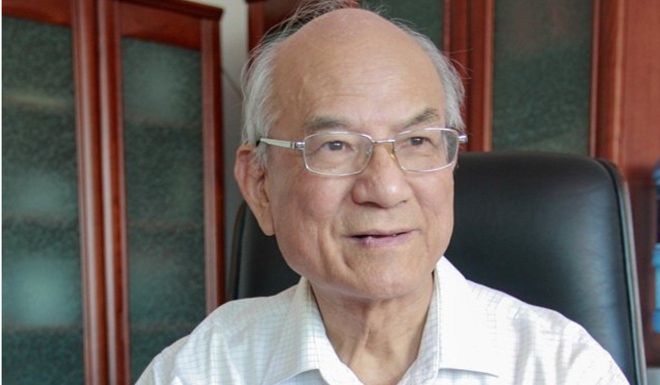Qian Qihu.jpg

China has a nuclear policy that says that it will not be the first to use nuclear weapons in a conflict with other nations. However, their policy also says that the Chinese nuclear capability must be able to survive a nuclear attack and retaliate against an enemy.
Qian Qihu is affiliated with both the Chinese Academy of Sciences and the Chinese Academy of Engineering. He recently received the 2018 State Preeminent Science and Technology Award which is the highest Chinese defense award. The award was presented to Qian by President Xi Jinping in the Great Hall of the People in Beijing last Thursday. The award included a cash prized of about one million two hundred thousand dollars.
In a recent interview, Qian spoke about China’s “Underground Steel Great Wall.” He said that this Great Wall could guarantee the security of China’s nuclear arsenal against a nuclear attack including being hit with the new generation of hypersonic weapons under development.
The Underground Steel Great Wall is a series of defense facilities buried deep under mountains in China. The facilities are protected from nuclear attacks by the mountains above them. However, the entrances and exits from these facilities are more vulnerable than the facilities themselves. Qian’s expertise was enlisted to provide more protection from those entrances and exits.
China has a strategic missile interception system, anti-missile systems and air defense systems. If all of these defenses fail in an attack by hypersonic weapons, the Underground Steel Great Wall will still protect the underground facilities.
Qian said, “The development of the shield must closely follow the development of spears. Our defense engineering has evolved in a timely manner as attack weapons pose new challenges.” Hypersonic weapons can travel at up to ten times the speed of sound. They are capable of penetrating any existing missile defense system.
Qian says that “National defense challenges do not only emerge from the development of advanced attack weapons but are also a result of an unpredictable international environment.” He mentioned the fact that the Trump Administration in the U.S. is considering lowering the threshold for deploying nuclear weapons.
Qian was asked by an interviewer how he would spend the award. He said that he would contribute part of the award to national defense research and would give the rest to social welfare projects such as supporting poor students and fighting poverty. He also said, "I have never had a thought of earning any prize money for my research, nor would I think it came too late. I am only grateful that national recognition offers a great opportunity to raise the public's national defense awareness.”
A Chinese military expert and television commentator said that Qian’s work guaranteed the safety of China’s strategic nuclear weapons, launch and storage facilities. The nation’s military commanders would also be protected by the Underground Steel Great Wall in case of a nuclear attack.
While it is certainly possible that burying facilities under mountains could protect them from a nuclear attack, there are special munitions being developed specifically to penetrate deep into the ground to attack such facilities. And even if the facilities themselves are protected, it is difficult to imagine exactly how exits and entrances could be made invulnerable to attack.